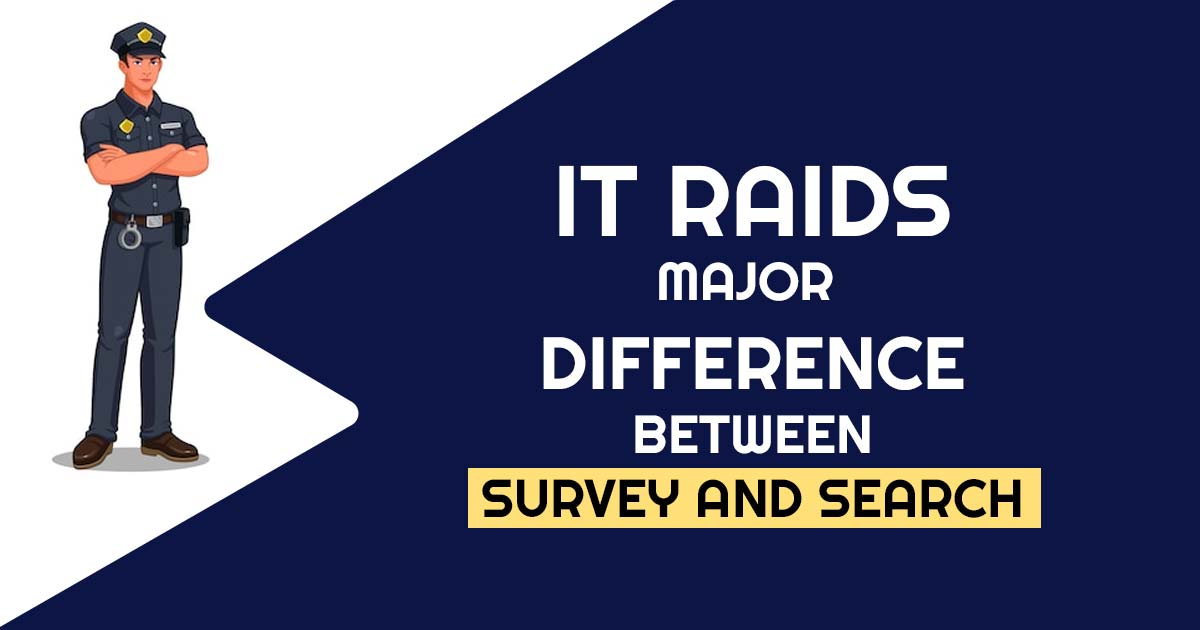
The Income-tax department has undertaken search operations at over 100 locations in various states such as Maharashtra, Delhi, Haryana, and Uttar Pradesh. They performed Income-tax surveys in different locations all over Delhi.
As per the tax administrators, the held investigation was performed because of some alleged mismatches in funding these bodies. The searches were performed as an action with respect to some unrecognized however registered political parties.
What Do You Mean by the Income Tax Searches?
The searches are said to be the thorough examinations of buildings, places of business, and other places to discover hidden income or wealth in tax evasion cases. The heads are empowered to seize documents, assets, bullion, and others, that are being concealed from the heads. Hence the same is said to be the “search and seizure” operations.
The same is called a “raid” in common terminology but no such word exists in the I-T Act of 1961. Searches are operated under Section 132 of the I-T Act.
What is the Term of Surveys During Income Tax Raids?
The tax council is doing surveys to reveal hidden income as well as property. The major intention is to concentrate on the collection of the data.
It is indeed confirmed in an investigation that if the individual or business has maintained its books of accounts or not.
It is directed via Section 133A of the Income Tax Act, 1961. The same was inserted in 1964. Some revisions were made to the section through the Finance Act, of 2002.
Difference Between Searches and Surveys While IT Raids
- The surveys could get accomplished during business hours while there are no restrictions for searches.
- Searches permit the seizure of unaccounted assets, at the time of searches the authorities are needed to be cautious and could maintain accountability afterwards for seizing
- In the case of non-cooperation, raiders could break open any door/ window, and nothing could get executed at the time of ongoing surveys.
The survey is said to be a calmer version of search procedures. In the surveys, the major purpose is to reveal the data. Whereas in search and seizure the main intention is to reveal the unaccounted wealth and histories of the same transactions.
The surveys could exclusively be performed at the same hours when the businesses are running their operations. While in the case of a search operation it could be performed at any hour.
The survey could get executed at the place where the business or professions are being operated. Unlike surveys, there is no restriction in the case of search operations.
Justification by Tax Experts
The tax expert justifies the same in the way that the “Search operation is regulated by the provisions of the Code of Criminal Procedure, 1973 which allow the raiding party in case of non-cooperation to break open any outer or inner door or window to get access to the premises where the search warrant needs to be executed. However, such power is not conferred for survey proceedings,”
“Few rights of taxpayers get suspended during the execution of search warrant however that is not a case during survey proceedings under Income-tax Act,” said a tax expert.
The authorities are not being empowered to seize any asset during the surveys prior to the enactment of the finance act 2002. But post revision the authorities could seize the books and the documents surveyed exclusively after recording the cause for execution. Without the permission of the Chief Commissioner, Commissioner, Director General, or Director, they cannot be kept for over ten days.
Search and Seizure
In the case of search and seizure functions, the authorities could seize any document or asset excluding the stock-in-business. They are enabled to find out anything hidden from their eyes. In any condition, they might take support from police officers or any other central government officer.








